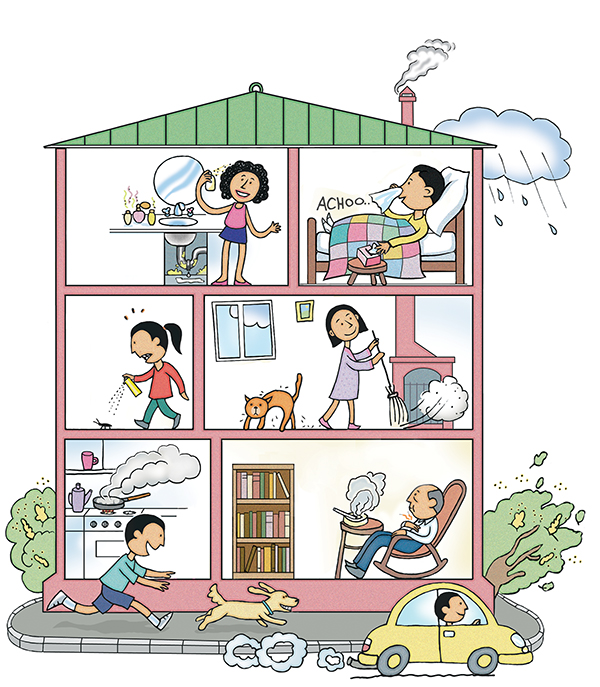Triggers are things that make your asthma worse. The more you can keep away from your triggers, the better you’ll feel. Your healthcare provider and other adults can help you know how to stay away from your triggers. Do you know your triggers? Put an X in the box next to each of your asthma triggers. Then find your asthma triggers in the picture and circle them.
|
☐ Pets and animal dander ☐ Dust and dust mites ☐ Cooking odors ☐ Smoke from tobacco or a fireplace ☐ Cockroach droppings
|
☐ Exercise or activity ☐ Changes in weather (cold, heat, wind, storms, humidity, or dry air) ☐ Colds or flu (respiratory viruses or bacterial infections) ☐ Dampness or mold (such as from leaky pipes) ☐ Acid reflux |
☐ Pollen from plants and trees ☐ Strong smells (such as from scented candles or personal care products) ☐ Sprays (such as hairspray, bug spray, or cleaners) ☐ Exhaust fumes from cars and trucks ☐ Strong emotions (such as crying, laughing, anger, or stress)
|


